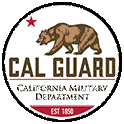VIDEO
163d Medical Group earns tactical combat casualty care certification
Airmen can now instruct and certify others in worst-case-scenario emergency medical skills
VIDEO: The 163d Medical Group, 163d Attack Wing, California Air National Guard, at March Air Reserve Base near Moreno Valley recently received its National Association of Emergency Medical Technicians Tactical Combat Casualty Care (TCCC) certification and can now instruct and certify students in TCCC. (U.S. Air National Guard video by Staff Sgt. Joseph Pagan)
VIDEO: The 163d Medical Group, 163d Attack Wing, California Air National Guard, at March Air Reserve Base near Moreno Valley recently received its National Association of Emergency Medical Technicians Tactical Combat Casualty Care (TCCC) certification and can now instruct and certify students in TCCC. (U.S. Air National Guard video by Staff Sgt. Joseph Pagan)
Story and video by Staff Sgt. Joseph Pagan
163d Attack Wing Public Affairs
Nov. 16, 2022
MARCH AIR RESERVE BASE, Calif. – The 163d Medical Group, 163d Attack Wing, California Air National Guard, recently received its National Association of Emergency Medical Technicians Tactical Combat Casualty Care for Medical Personnel (TCCC-MP) certification and can now instruct and certify students in TCCC.
"The 163rd Medical Group is leading the way," said U.S. Air Force Master Sgt. Joshua Liko, the group's aerospace medicine superintendent. "We are going to be certified to teach tier three tactical combat casualty care for the medical military provider."
Liko hailed the instructional team.
"We have a great cadre for instructors that will be able to teach and get the information across to all the members and students in the classes. We have the equipment necessary to perform all of the skills and the interventions needed within the algorithm, which is M.A.R.C.H., which is stopping massive hemorrhaging, maintaining an airway respirations, checking for circulation and maintaining perfusion as well as treating for hypothermia."
"We want to make March Air Reserve Base and the 163rd Med Group as one of the pivotal training sites within the Western region to where we come here and knock out all most, if not all, of our medical requirements," Liko said.
Summer Brown, a civilian course certifier with years of experience as a medic, paramedic, and instructor, ensured the quality of the instruction and hailed the group's instructors and facilities.
"The folks here at the 163d Med Group are highly qualified," Brown said. "They've got a great facility. They've got a great team and they have the appropriate instructors with the confidence to deliver the material."
For Staff Sgt. Jamil Antoine, a U.S. Air Force Reserve Airman who serves as an opthalmic technician at the 752nd Medical Squadron, 452nd Air Mobility Wing, which is the installation's host wing, the in-depth hands on training was unlike anything he'd experienced before.
"This was the first time I've been in this in-depth training like this, extremely immersive," Antoine said. "Other trainings that I've been a part of, they weren't really immersive. They're really just classroom-based. Here, applying tourniquets, we had fake arteries, fake blood."
In the exercise scenario, live patients challenged students with simulated injuries.
"It's definitely one of the most immersive medical trainings I've been a part of," Antoine said. "Going in yesterday morning and where I'm at now, I definitely feel a lot more prepared for any scenario that might happen."
The specialized training gives Airmen with medical Air Force Specialty Codes basic triage skills regardless of their actual specialty.
"In the event there's like a mass casualty or things like that and we're short personnel, they can pull someone like me who's an ophthalmology tech and then put them out into that mass casualty situation to triage to treat wounds, whatever the case may be," Antoine said.
"The professionalism, the training plan, the facilities, the type of equipment that we had, I really haven't seen before," he said. "If it's not equal to what I would get on active duty, I feel like it was better."


